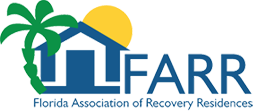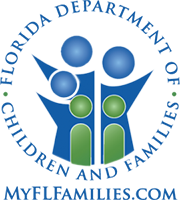How to Truly Support Your Loved One in Recovery
Family support plays a central role in addiction recovery. People are more likely to recover when their families are behind them. But it’s important to know how to provide support; the wrong approach can actually get in the way of recovery. Effective help requires families to use strategies that include educating themselves, communicating honestly, and participating in family therapy sessions.
Families and Addiction
You know first-hand that addiction is a family disease; it doesn’t just affect the addict but impacts friends and loved ones too. Most families want to help their addicted loved ones, but they run the risk of enabling the addiction if they don’t offer support in the most effective way.
What Is Enabling?
Enabling entails anything causing a destructive behavior to continue. It usually looks and feels like helping, and other people may even praise you for how much you’re doing. But enabling can be one of the worst actions you can take for the person you care so much about.
This doesn’t mean it’s your fault your family member continues to struggle with addiction. They are responsible for their recovery. But you need to know if you are wasting your time and emotions with the wrong kind of support.
Are you enabling your loved one’s addiction? Ask yourself if you’ve done things like:
- Calling your loved one’s employer to say he’s sick when he’s really just hungover.
- Going into debt to help your child pay for rehab that she doesn’t participate in.
- Cleaning up a mess that your partner made in the house to keep their problem secret.
These and other actions do little or nothing to help the addict and can only hurt them by prolonging a bad situation – not to mention the stress they’re causing you. The next time you start to repeat one of these actions, ask yourself these questions about yourself and your addicted family member:
- Is this something they could do themselves?
- Has it ever helped, or do they just keep using?
- Am I really trying to help, or does it just make me look like a saint?
- Is it helping them or hurting me?
Ways to Support Without Enabling
There are many ways you can show your support without enabling your loved one’s addiction.
- Educate yourself: Learn as much as you can about addiction and its physical and neurological causes and effects. It’s important to understand that an addict can’t “just quit” but is dealing with a chronic disease. This disease can cause changes to the brain that affect impulse control. The National Institute on Drug Abuse is an excellent place to learn the latest information about addiction.
- Be clear about boundaries: Have a conversation at the beginning of their recovery, discussing what behavior is and is not acceptable, and establishing consequences when boundaries are broken. Don’t present these as punishments but as the logical results of certain behavior.
- Communicate honestly: Be supportive when your loved one talks to you about their struggles, but don’t help them make excuses or give them permission to “take a break” from recovery. At the same time, don’t judge or criticize them. Let them know you’re there to listen and help them through their recovery.
- Refrain from using substances around them: This will not only help to remove the temptation around them but will also show how strongly you support them. Don’t present your abstinence like a sacrifice you’re making for them; making them feel guilty will only make their recovery even harder.
- Attend family therapy and participate fully: As a family disease, addiction requires help for the whole family. You need support and guidance too. Look for a family therapy program that’s individualized for your family’s situation, like those offered by The Source. When you do join, don’t just attend the sessions; be an active participant.
Reach out with love and honesty to help your loved one succeed in recovery. Contact The Source or call (800) 204-0418 to learn more about helping your friend or a family member find true healing.

 The Source quite frankly saved my life and got me back on track, never giving giving up on me. When you are thinking about and looking through all of the different places to go for treatment this is the one that should stand out from the rest.
The Source quite frankly saved my life and got me back on track, never giving giving up on me. When you are thinking about and looking through all of the different places to go for treatment this is the one that should stand out from the rest.




























